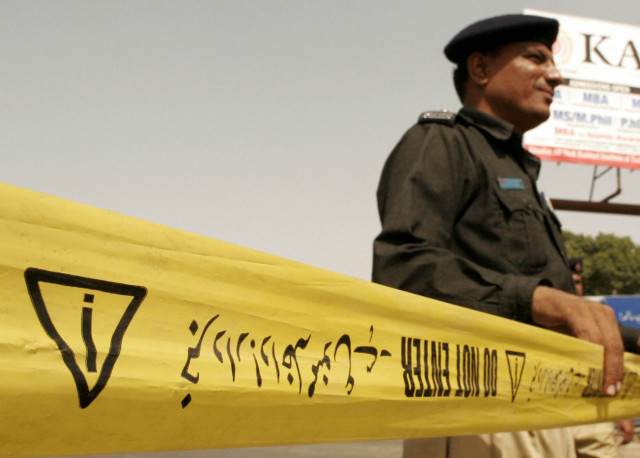Sindh, K-P state of affairs: Police stations understaffed
A report finds precincts across the country lack basic infrastructure facilities.

A new report by the Free and Fair Election Network (FAFEN) on the state of police stations in Pakistan shows not just massive understaffing, but a lack of infrastructure, understanding of basic laws and deep-rooted issues.
The report is based on Fafen’s monitoring of 90 police stations – 39 in Punjab, 23 in Khyber-Pakhtunkhwa, 20 in Sindh, seven in Balochistan and one in Islamabad Capital Territory – from January-March 2011.
Fafen’s monitors highlight a key issue: the staffing of police stations. The report states that 34% of seats are vacant in Sindh, 20% in Khyber-Pakhtunkhwa and Punjab has to fill eight per cent sanctioned posts. It also found that the police stations in Islamabad and Balochistan were overstaffed, but the data may not be indicative given the minimal number monitored compared to the three provinces under study. The report said: “Such disparity in the deployment of police force is reflective upon the preferences of authorities in protecting the citizens.”
Moreover, the report found a lack of basic infrastructure in police stations – as many as 20 of the 90 stations it monitored were not housed in proper buildings and 37 were dilapidated. The condition of at least 44% of the lock-ups were found to be unhygienic and 10 stations did not have lavatories for the staff and inmates.
In a recent interview, security analyst Ikram Sehgal recalled a visit to a police station in Clifton. “I saw the furniture of the police station being carried out. When I inquired I found out that the station house officer (SHO) had been transferred and he was taking ‘his’ furniture to his new post. Apparently every SHO must furnish their offices!”
Fafen also found that 24 of the police stations did not have stationery to register formal complaints and in 13 of them, the officer who is tasked with registering an FIR asked people to provide stationery to register a report. With these constraints, 11,610 FIRs were recorded
between January and March, the highest number reported in Punjab. Complaints of torture at the hands of the police were received from five stations. Police officers and people alike were largely unaware of policies governing access to information.
These facts should be no surprise for government officials, given their high number of visits to police stations, or to police officers. Funding for the police has increased in recent years, yet deep-rooted issues within the system – political influence, corruption, lack of infrastructure and inadequate training are among a few – will take much-needed police reforms to solve.
“We are still spending peanuts on law enforcement,” says Jameel Yusuf, the founder chief of the Citizens Police Liaison Committee. Yusuf advocates reforms and the proper implementation of a public safety commission and a police complaint authority, besides calling for allowing the police and civil bureaucracy to work without any political pressure.
But attempts to initiate reforms failed, including during the Musharraf regime, when politicians interfered and got the Police Order of 2002 changed.
Even though political parties continuously call for police reforms, little practical work has been done. Yusuf jokingly remarks: “Politicians talk sense when they’re in the opposition – about the right to justice and corruption - but when (they) come into power they forget that. The only solution is police reforms.”
Published in The Express Tribune, June 2nd, 2011.



















COMMENTS
Comments are moderated and generally will be posted if they are on-topic and not abusive.
For more information, please see our Comments FAQ